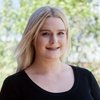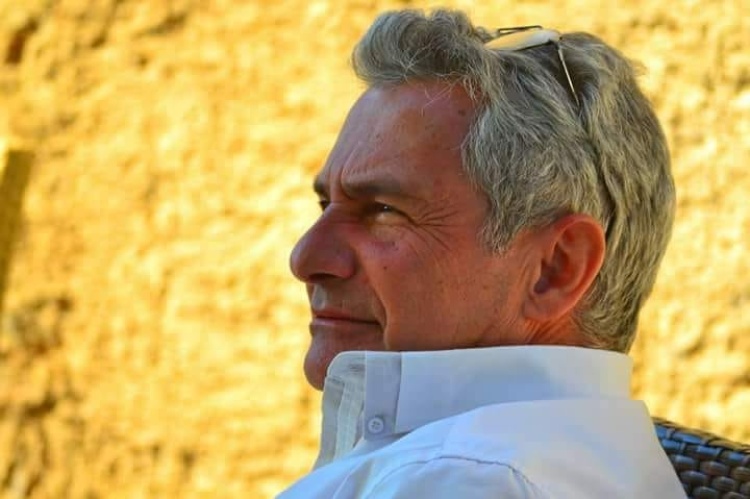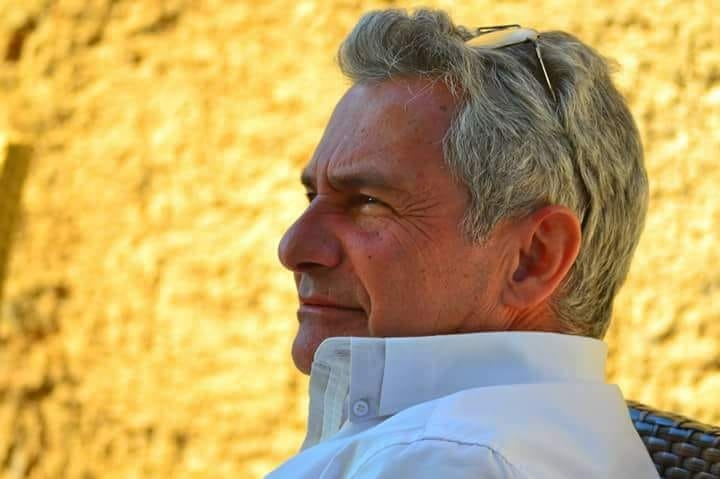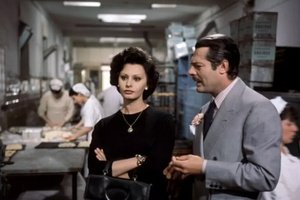While he is considered an icon in the literary sphere, Bruno explained that his success was all somewhat of a fortunate accident.
Though his love of letter-writing and newspaper articles sparked a passion for literature early on, Bruno never studied it at a tertiary level and his talent for picking apart a piece of work is all self-taught.
His relationship with some of Australia’s greatest wordsmiths began when he was working as a TAFE literacy teacher at Victoria University.
Though Bruno understood the importance of teaching his students practical skills that they would use in everyday life, he also felt that those things didn’t necessarily “feed the soul”.
He began introducing his students to his favourite texts and the creative forces behind them.
“I invited writers to come and speak to my students because I was trying to engage them in telling their own stories and having a go at some of these things too,” Bruno said.
The innovative idea to welcome writers into the classroom led to the conception of Rotunda in the West: Conversations with Australian Writers.
The initiative was a series of intimate discussions with Australian writers, hosted by Victoria University but open to the wider community.
“We started with writers like Martin Flanagan from The Age because I loved how he captured football and family life,” Bruno said.
The conversations became a monthly affair and continued for around seven years.
They also launched Bruno onto the literary scene as a remarkable interviewer.
“I was just a literacy teacher and all I had was a love of the stuff I read, so [interviewing] was something that I had to learn to do myself,” he explained.
“I’m not a particular expert in any of it but I just trusted my instincts.”
With around 100 interviews under his belt to date, Bruno has certainly learnt a thing or two and is renowned for making a public conversation feel more like a carefree catch up between friends.
Writer and actress Ailsa Piper perfectly articulates Bruno’s inherent ability to enrich both audience and author with his interviews:
“He makes friends of entire audiences by asking the questions they want asked, even when they didn’t know it. He beguiles writers into revealing the things in their work that were hidden even from them.”
Meanwhile, writer Helen Garner personally told Bruno he creates multiple platforms in conversation, something which delighted him to hear.
In fact, this quality is Bruno’s secret to a successful interview.
“You have to shift the conversation and leap into a totally different realm – a bit like what writers do – otherwise the conversation becomes stagnant,” he explained.
“If you’re too linear, you get caught out; you have to be in the conversation.”
Bruno likens the experience to talking with someone dear to him, as though they were curled up in front of the fireplace together with a glass of wine, asking the most intimate questions and receiving the most candid responses.
There is an overwhelming sense of trust and transparency in each encounter.
“Writers aren’t always outgoing, extroverted people and they’re often immensely shy, so they want someone to drive the bus metaphorically with some assuredness,” he said.
“There are quite silly and frivolous moments, there are moments of great seriousness and there are tender moments.”
While Bruno’s time as a teacher at Victoria University has come to an end, his ongoing dialogue with some of Australia’s most innovative minds has not.
He now lives a nomadic lifestyle, spending almost half the year in Indonesia and regularly returning to Italy, where he was born and spent the first 10 months of his life.
In September, Bruno will visit his hometown of Rofrano, in the hills of Campania, with his son Luca.
When he’s on Australian soil, Bruno participates in artistic initiatives, workshops, festivals and events.
His next appearance will be at the Williamstown Literary Festival, on June 16 and 17 at the Williamstown Town Hall.
On the festival’s second and final day, Bruno will interview his close friend Alice Pung and the subject of her latest book, John Marsden.
Later that afternoon, he will speak with Walkley Award-winning journalist Greg Baum and discover what makes him tick.
Perhaps his most intriguing event, however, will be the Poetry Bus to Mystery Places on the eve of the festival.
Literary lovers will have the chance to embark on a magical tour around Hobsons Bay on a double-decker bus, stopping at mystery locations for live poetry readings by four special guests: Kristin Henry, Amy Bodossian, Chris Ringrose and Ailsa Piper.
The idea of an enchanting poetry bus came to Bruno when he heard Kristin Henry read a poem before an audience of people who “wouldn’t regard themselves as poetry lovers”.
“It was magical and we were all in it with her,” Bruno said.
“I realised that poetry is this central language full of imagery and it has this way of cutting through to people.”
Bruno then asked himself: What if we stood on a pier at sunset with a glass of wine and listened to this?
The Poetry Bus ran once a year for seven years as part of the Rotunda series, featuring new poets every time.
The double-decker hasn’t been in action since Bruno stopped teaching at the university a few years ago, and he’s eager to see it start up again.
As he gears up for an evening of poetry, music and laughter, Bruno has one message to all of the Poetry Bus’s potential passengers:
“Get rugged up and bring your adventurous spirit. You’re going to be cold and shivering, but imagine shivering and then being shivered even more by the poem that’s being read to you!”
For more information on Bruno’s involvement in the Williamstown Literary Festival and tickets to his events, visit the festival’s website.












